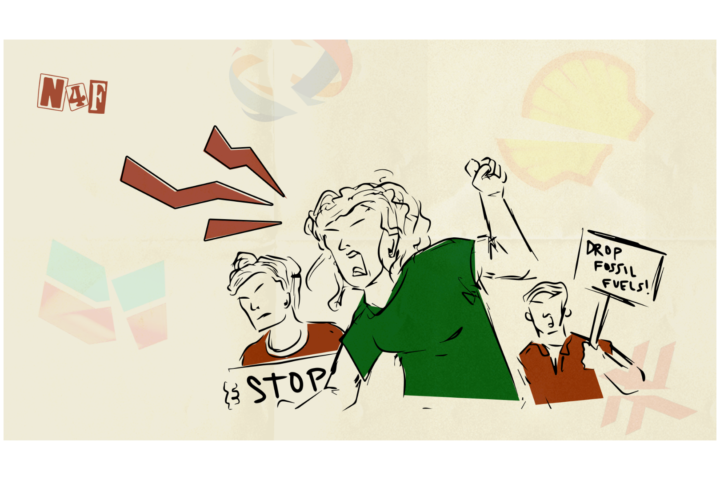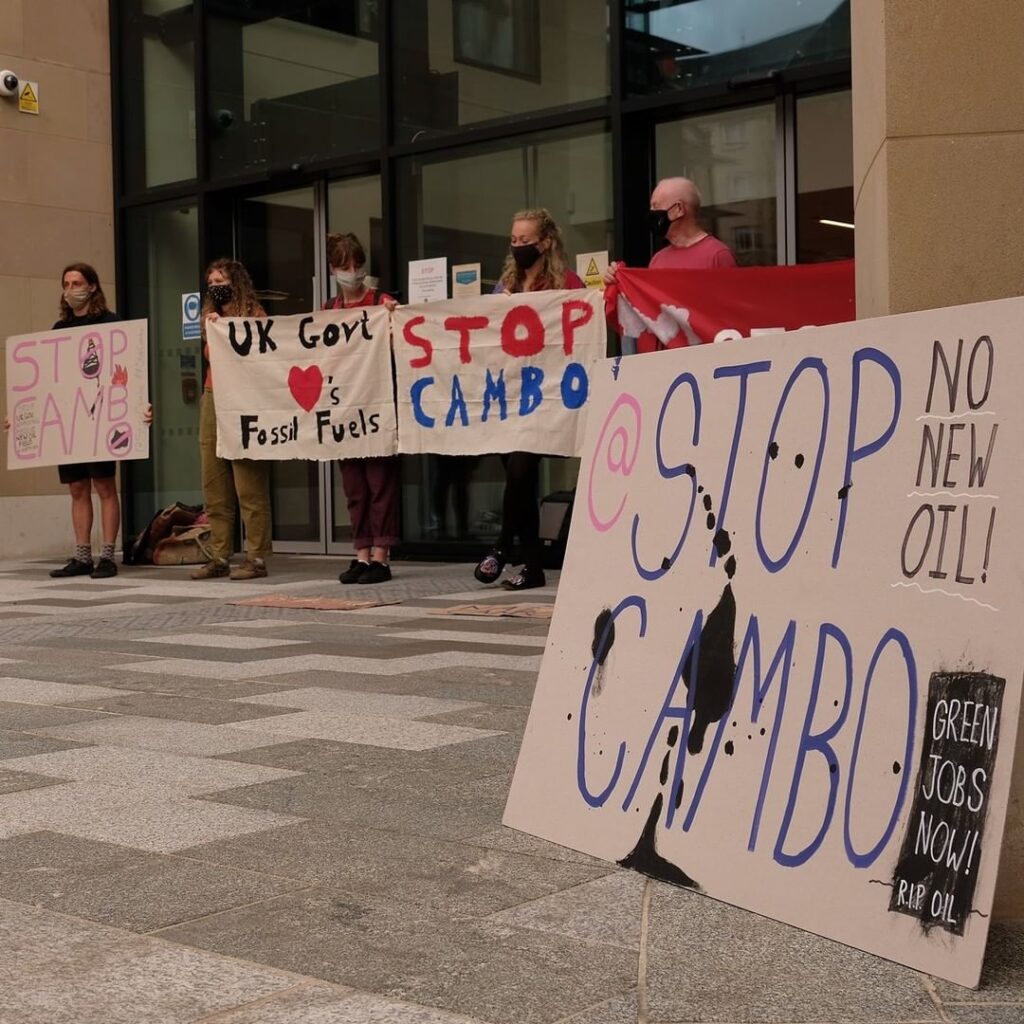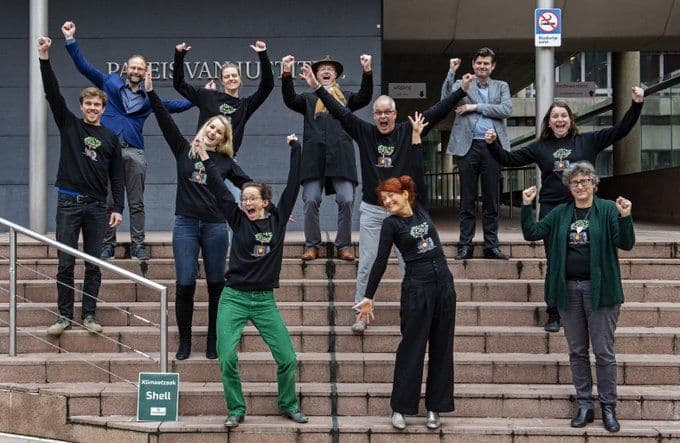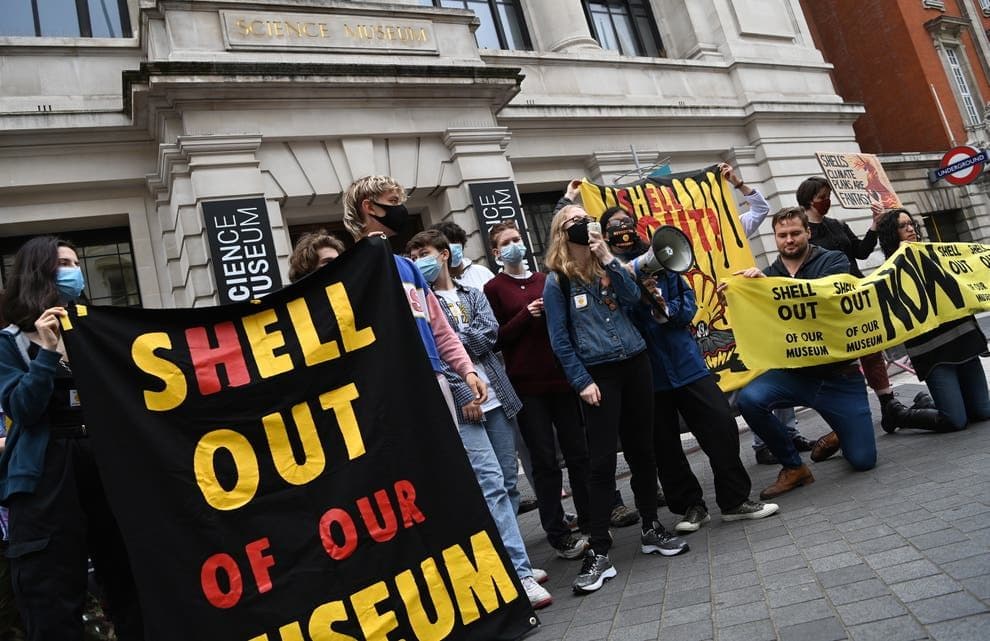While there are a multitude of institutions that need to be held accountable for the climate crisis, it is no exaggeration to say that the blame for much of the climate disasters we are seeing every day — from massive floods in India to droughts and heatwaves in the USA — can be traced back to just a handful of fossil-fuel companies. However, activists have no intention of letting this stand. Among these climate-killers are Royal Dutch Shell, ExxonMobil, and Chevron — three massive corporate entities, which each lost significant battles with climate activists in May.
Chevron and Exxonmobil are USA-based companies worth 205 billion and 267 billion dollars respectively, and ranked second and fourth on a list released by The Guardian of top global carbon emitters since 1965. Shell — the fifth-largest company in the world — is a British-Dutch company worth 163 billion dollars and ranked as the seventh-worst carbon emitter. While headquartered in the Global North, their fossil fuel empires extend across the globe – and on top of contributing to the climate crisis, many of their projects directly displace or otherwise harm local communities, with past scandals including multiple mass human rights violations.
Activist battles against these companies have been a defining characteristic of the movement for decades, with new campaigns popping up practically every week. Just this year, the Future Beyond Shell campaign was launched by a coalition of three activist groups: the Centre for Research on Multinational Corporations, the activist researchers of the Transnational Institute, and the Dutch anti-fossil-fuel activists Code ROOD. This campaign aims to spread research and anti-Shell strategies to get more groups and individuals on board with tackling the fossil fuel giant. Other notable anti-fossil-fuel campaigns that have recently gained prominence include the campaign against the East African Crude Oil Pipeline and the Stop Cambo campaign.
May 27th – Mayday for Fossil Fuel
But on May 27th, everything changed as three major victories were won in a single day against fossil fuel companies Chevron, Exxonmobil, and Shell – marking what many have described as a ‘turning point’ for climate action.
At Chevron, the change came from the inside. At a shareholder’s meeting, 61% of shareholders voted to cut emissions generated from the sale of their products – a notable milestone even if it isn’t currently accompanied by concrete plans of how to do so. On top of this, two other votes, requiring the company to report its environmental impacts and lobbying efforts, were supported by 48% of shareholders – not enough to pass, but a clear sign of the growing dissatisfaction with the company’s complicity in climate destruction.
At Exxonmobil, a similar internal upheaval took place as a tiny climate hedge fund known as Engine No. 1 won three director seats on Exxon’s 12-member board. They were opposed by an expensive $35 million campaign by Exxon itself, but were supported by some of the company’s biggest investors, including investment firm BlackRock. Exxonmobil is also facing the prospect of further losses immediately following the first, with court cases from the States of Massachusetts and Connecticut attempting to hold the company accountable for deceiving its customers and shareholders about the extent of its climate impact.
Meanwhile in the Netherlands, Shell faced a dramatic loss in court thanks to an alliance of activists led by Milieudefensie, the Dutch branch of Friends of the Earth. The campaign began in 2018, when activists realised that protests alone were not effective enough and the courts may be the only way to influence these vast companies. Unlike many other such cases, the aim was not to gain financial compensation – just to force the company to cut emissions. Most of the campaign consisted of research, carried out by a team of activists almost exclusively under the age of 30. The actual court case took place over 4 days in December 2020, and the verdict was announced on the 27th – Shell must cut 45% of its CO2 emissions by 2030 (compared to 2019 levels) – in line with the Paris agreement.
Milieudefensie activist and policy officer Sjoukje van Oosterhout described the impact of the victory:
“In the climate movement we’re not used to winning… This verdict has given so much positive energy back to the movement, and hope that change is possible. Organizations reached out to us to let us know that we’ve given them energy to continue their fight.”
Shell recently announced their decision to appeal, and soon after the activist coalition sent a letter to Shell asking for conversation, hoping to prevent the appeal. “Shell has a lot to lose by appealing,” Sjoukje explained – on top of the expense, “investors, shareholders, will be unstable for the next few years.”
‘Drop Shell’ – Occupying the Museum
Far from resting on their laurels, the victories of May 27th have only further inspired activists to strike against these fossil-fuel giants. Just last month, the London chapter of youth activist group UK Student Climate Network (UKSCN) launched their ‘Drop Shell’ campaign against the Science Museum in London – specifically, an exhibition sponsored by Shell.
The exhibition, which claimed to be about ‘Climate Change Solutions’, focused on futuristic carbon capture technology and included a display of activist placards used without permission. Scientists such as Dr Emma Sayer involved in the exhibition stated that they were not informed about the Shell sponsorship before they agreed to contribute. “We understand that things have been difficult for museums… but it is still inexcusable to be sponsored by Shell,” says Tamar, an activist from UKSCN London.
UKSCN’s campaign followed on the heels of an effort by Extinction Rebellion scientists to disrupt the opening day of the exhibition. It began with petitions and an open letter, before escalating to a boycott of the museum and protests outside. When this too was ignored, UKSCN decided to hold a sit-in inside the museum on June 19th in order to get the attention that the movement needed. The occupation, which Tamar described as “reclaiming the space from the fossil fuel companies”, included peaceful group discussions, placard-making, music, and a banner drop inside the museum. Initially, museum security seemed supportive, and as previous overnight protests of other groups at museums such as the Tate had been successful, the activists did not anticipate any issues.
However, activists later discovered that police had already been called at this point. Only two hours after the museum closed for the night, around 30 officers arrived, attempting to intimidate the activists and threatening them with arrest on the baseless charge of ‘aggravated trespass’. The activists agreed to leave peacefully, but were quick to express their condemnation with another protest held outside the museum the next day.
The impact of the protest was wide-reaching, particularly over social media; and while the museum has not yet dropped the Shell sponsorship, the movement has hopefully dissuaded other institutions from allowing similar greenwashing into spaces intended for the honest education of the youth.
What Next? – How You Can Help
UKSCN’s campaign remains ongoing, with the activists currently aiming for a future collaboration with the museum workers’ union, who supported the protest. If you want to help, you can support UKSCN by following them on social media, and joining their boycott of the Science Museum. The Future Beyond Shell campaign is also ongoing, as are many other anti-fossil-fuel actions – including an upcoming legal effort against the French fossil fuel company Total, with which Milieudefensie are offering support and sharing their expertise.
As efforts to hold fossil fuel companies accountable continue, one of the most powerful tools is public pressure – and it is all of our task to help keep that pressure alive. Milieudefensie activists attributed much of their victory to this pressure, stating that “I don’t think we would be where we are today if it wasn’t for young people taking to the streets.” Government action is also invaluable, as laws are one of the few things that megacorporations can be made to obey – making actions to pressure leaders even more vital, particularly around events such as the upcoming COP26 global climate summit in Glasgow this year.
Most importantly, as Sjoukje says: “Never stop protesting. It really does help.”




